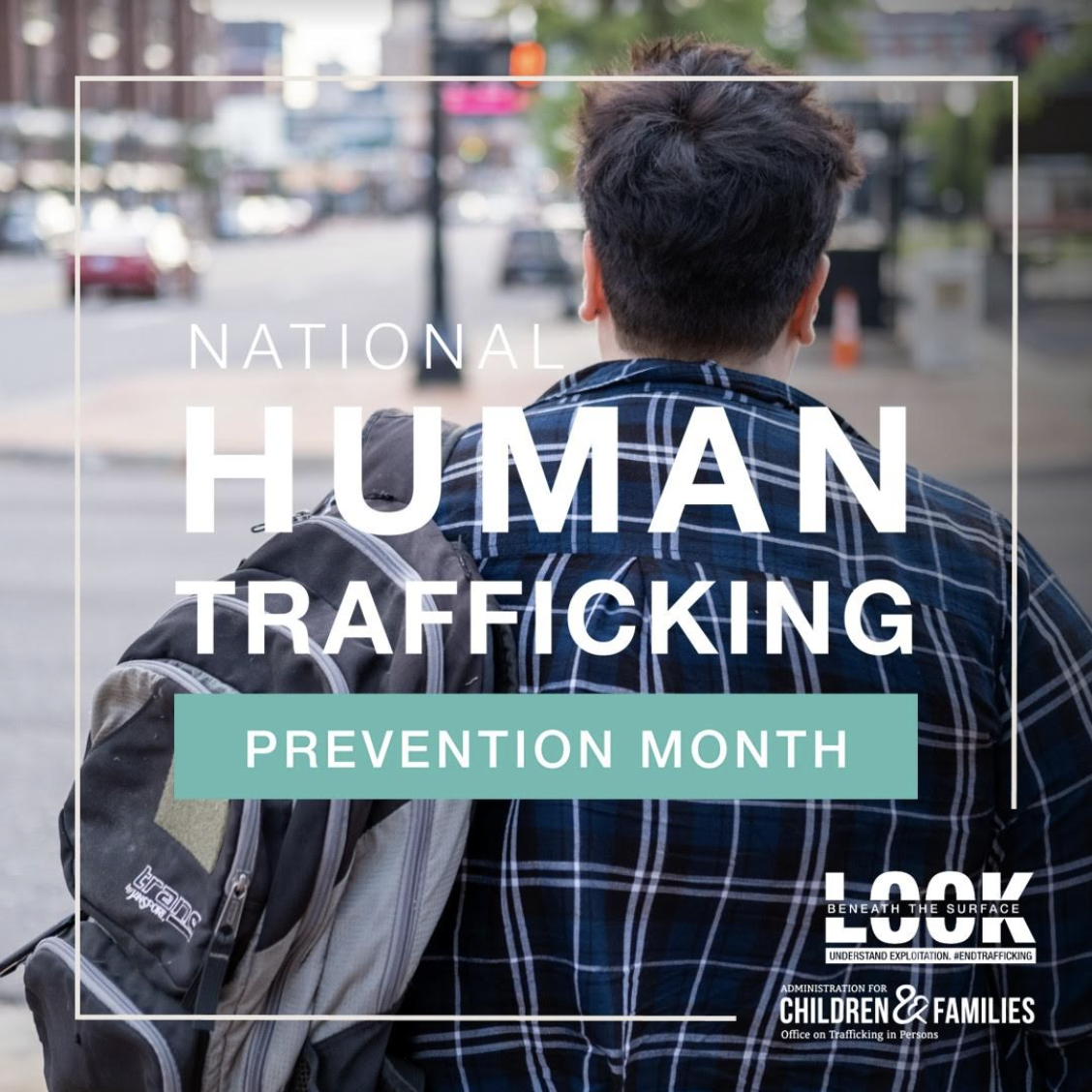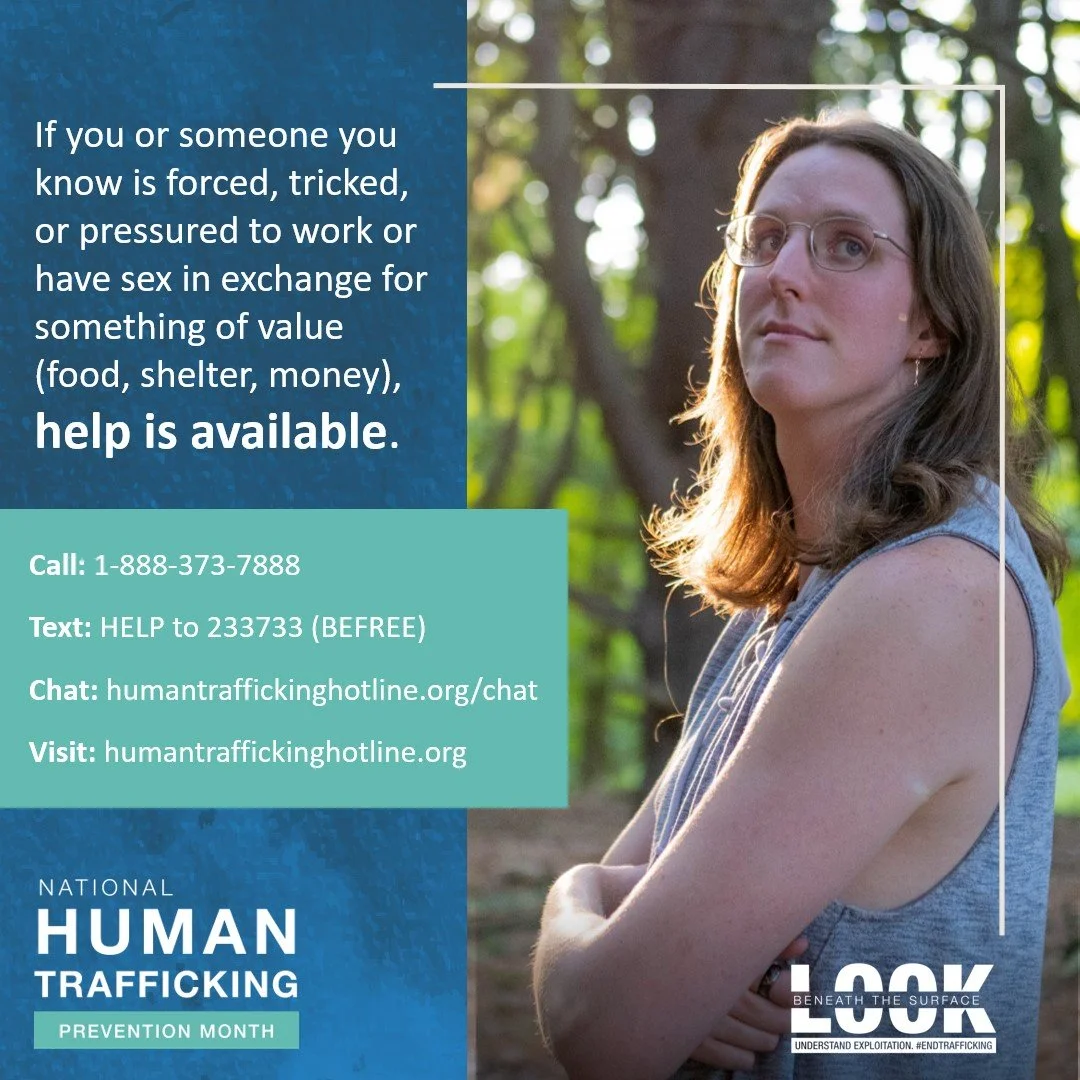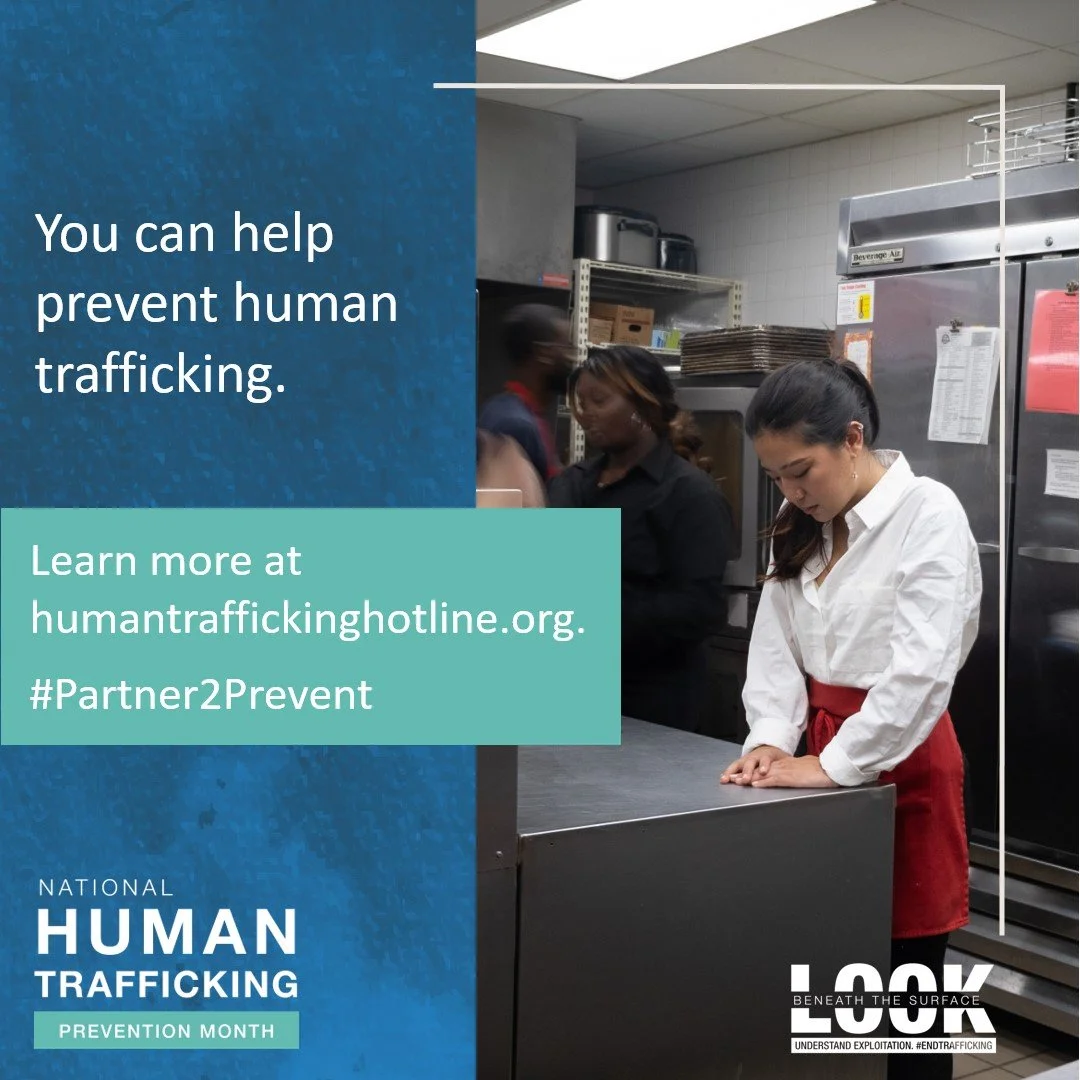Know what to look for: 10 Signs of Human Trafficking
January is National Slavery and Human Trafficking Prevention Month
By Brittany Spratt, Programs for Peaceful Living
Bingen, Washington, December 27, 2023 — Human trafficking is a global crisis. During the month of January, it is officially recognized to raise awareness in order to create change for a better world. Acknowledging and showing support during National Slavery and Human Trafficking Prevention Month helps contribute to rescuing victims, catching perpetrators, and improving the lives of survivors.
It is a multi-dimensional crime. Human trafficking can involve forced sex acts, labor exploitation, and debt bondage. Because of its complex nature, there are a limited number of reliable statistics related to human trafficking. It is difficult to know exactly how many individuals are affected, but the US Department of State estimates that there are an estimated 27.6 million people subjected to human trafficking around the world.
Traffickers often operate under the radar and use coercion or threats to keep victims from reporting their situation, making this crime the ultimate abuse of human rights.
Human trafficking can affect anyone regardless of age, race, gender identity, and education level or citizenship status. There are no rules that human traffickers follow when they choose a victim. This is why it is so important to be aware of the signs of potential human trafficking.
Ten questions from the U.S. Department of State to consider if it is believed someone is being trafficked:
Is this person living with their employer?
Do they have poor living conditions?
Are multiple people in a cramped space?
Do you have the inability to speak to the individual alone?
Do their answers appear to be scripted and rehearsed?
Is their employer holding identity documents?
Are there signs of physical abuse?
Is the individual submissive or fearful?
Are they unpaid or paid very little?
Are they under 18 and in prostitution?
To make a report of a person who may be being trafficked, dial the national trafficking hotline at 1-888-373-7888. Locally in Klickitat County, call an advocate at Programs for Peaceful Living, the local crime victims service center, at 1-509-493-2662.
On January 11 each year, Human Trafficking Awareness Day is recognized by supporting the “Wear Blue to Raise Awareness” campaign. Support is shown by taking photos wearing blue clothing and sharing them on social media with the hashtag #wearblueday.
Programs for Peaceful Living is part of the Washington Gorge Action Programs (WAGAP) family. Washington Gorge Action Programs (WAGAP) is a 501(c)(3) non-profit Community Action Agency that helps individuals, families, and communities. WAGAP addresses basic human needs, including food, shelter, energy assistance, and more, in Skamania and Klickitat Counties. For more than 50 years, WAGAP has helped people help themselves and reach self-sufficiency. Learn more at wagap.org, or contact WAGAP at (509) 493-2662 or info@wagap.org.




